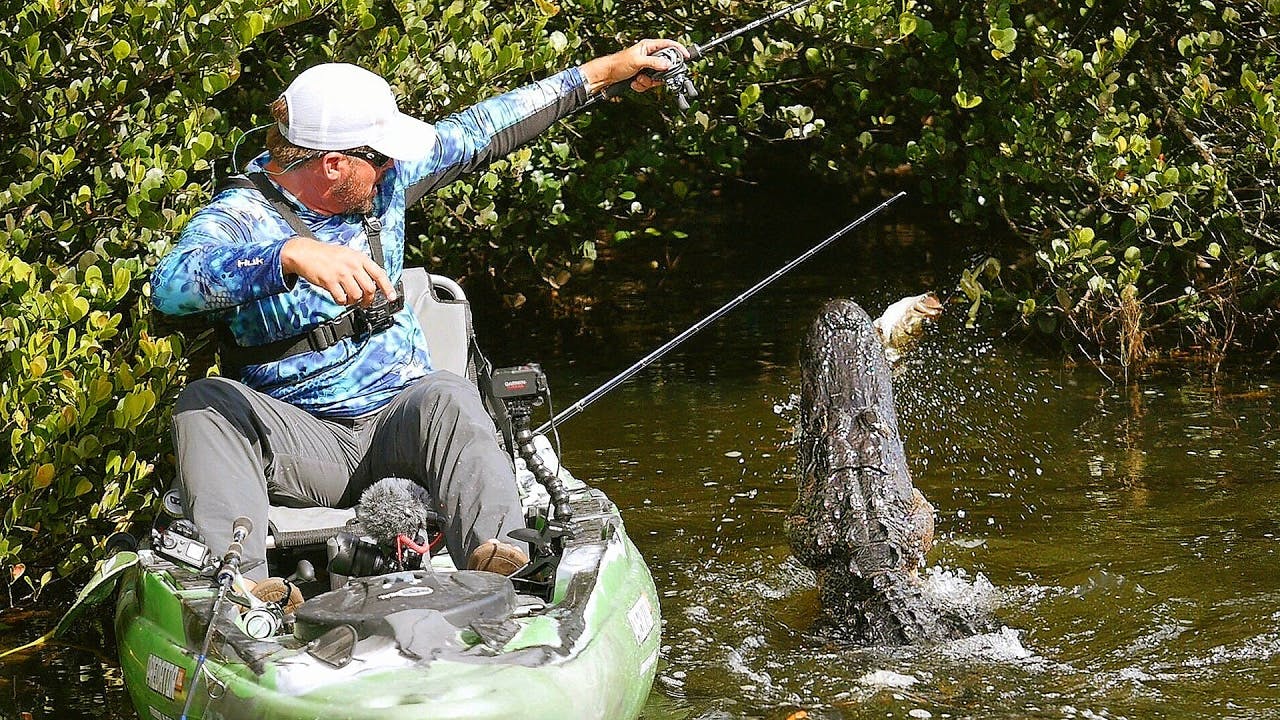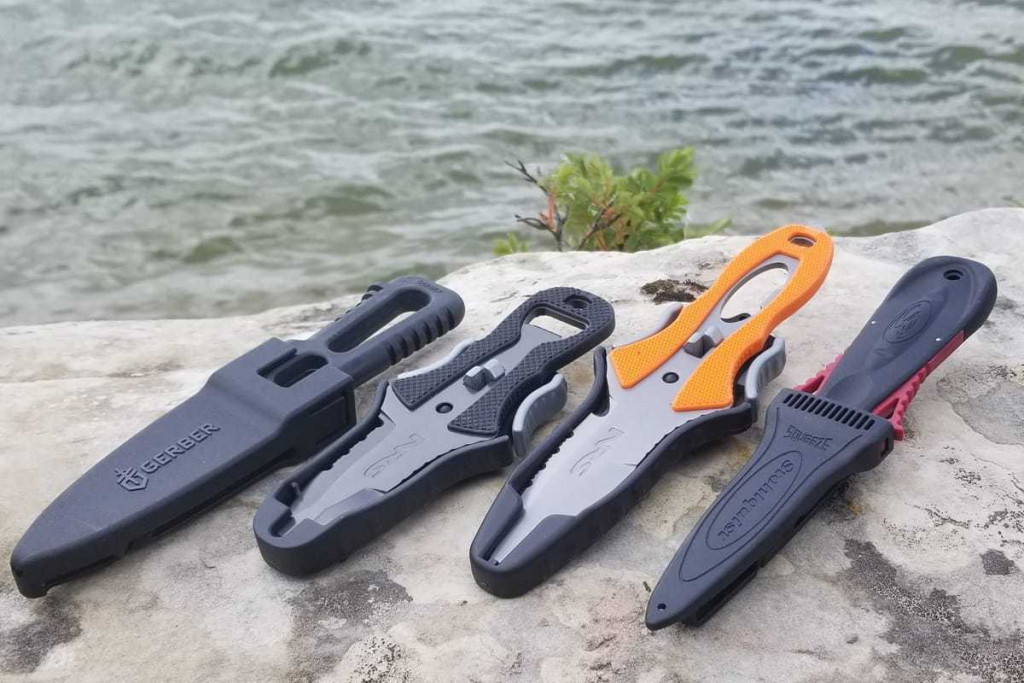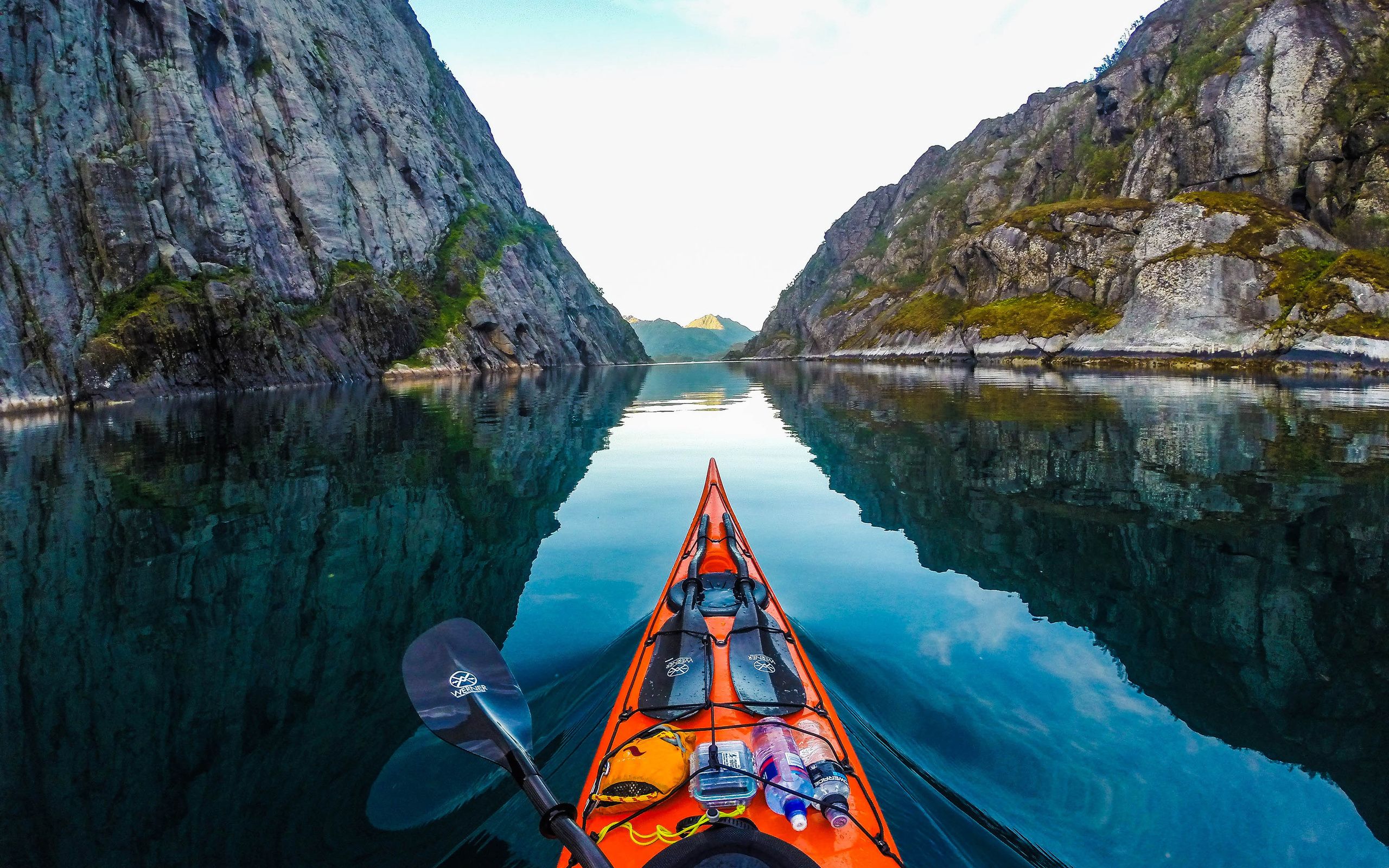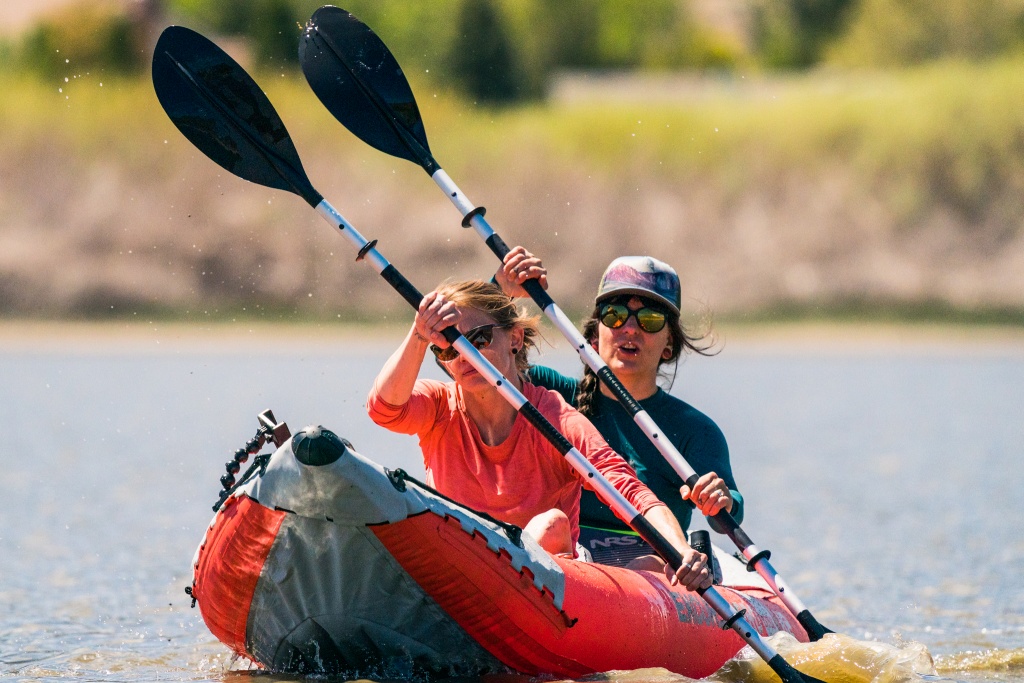
- Alabama
- Alaska
- Arizona
- Arkansas
- California
- Colorado
- Connecticut
- Delaware
- Florida
- Georgia
- Hawaii
- Idaho
- Illinois
- Indiana
- Iowa
- Kansas
- Kentucky
- Louisiana
- Maine
- Maryland
- Massachusetts
- Michigan
- Minnesota
- Mississippi
- Missouri
- Montana
- Nebraska
- Nevada
- New Hampshire
- New Jersey
- New Mexico
- New York
- North Carolina
- North Dakota
- Ohio
- Oklahoma
- Oregon
- Pennsylvania
- Rhode Island
- South Carolina
- South Dakota
- Tennessee
- Texas
- Utah
- Vermont
- Virginia
- Washington
- West Virginia
- Wisconsin
- Wyoming
Alligator Encounter: How to Stay Safe on the Water
During Alligator Mating Season
- 1 - What Should One Do If They Find Themselves Kayaking With Alligators?
- 2 - What Should You Do If You Are Kayaking And See An Alligator While Out On The Lake?
- 3 - During Alligator Mating Season, Is It Safe To Paddle A Kayak?
- 4 - What Does The Behavior Of An Irritated Alligator Look Like?
- 5 - Will Alligators Attack A Kayak?
Kayaking is a thrilling and peaceful experience that offers a chance to explore nature and escape the hustle and bustle of everyday life. However, kayaking in the wrong place or at the wrong time can be dangerous, especially if you encounter alligators. Alligators are powerful and unpredictable animals that can cause harm to kayakers and other water enthusiasts. In this article, we'll take a look at the safety concerns associated with kayaking in alligator-infested waters, and what you can do to stay safe while enjoying this exhilarating activity. Whether you're a seasoned kayaker or just starting out, it's important to understand the risks and take the necessary precautions to ensure a safe and enjoyable experience on the water.
What Should One Do If They Find Themselves Kayaking With Alligators?
Kayaking in areas where alligators live can be a thrilling experience, but it's important to understand how to safely interact with these magnificent creatures. Alligators are typically shy and uninterested in interacting with humans, but they can become frightened if a kayaker approaches too quickly or erratically. To ensure a safe and peaceful encounter, it's best to keep your kayak pointed away from the alligator and to paddle smoothly and calmly. This will minimize the chances of startling the alligator and allow you to get close, but not too close, to these fascinating creatures.
Alligators Are Sluggish
If you are a kayaker and you come across an alligator sunning itself on a sandbar, it is important to understand the behavior and needs of these reptiles. Alligators have three basic needs: to feed, reproduce, and regulate their body temperature. Since they are cold-blooded, they cannot control the temperature of their bodies internally, so they must rely on external sources like the sun or water to regulate it.
If the water temperature is not comfortable, alligators will often leave the water to sun themselves on a sandbar. When encountering an alligator in this state, it is best to avoid pointing your kayak directly at the animal and instead keep the broad side of your boat facing it as you paddle by.
If there isn't enough space to avoid pushing the alligator into the water, don't worry, it's not a big deal. Just continue kayaking and be cautious. Remember, alligators are not looking to interact with humans and they simply want to fulfill their basic needs.
What Should You Do If You Are Kayaking And See An Alligator While Out On The Lake?
Most of the time, encountering an alligator while kayaking is a non-event. You may come across anywhere from a few to several alligators swimming in the water, but they will usually only reveal their eyes and nose, which is about a foot or two of their head. If this happens, simply continue paddling past them, making sure not to point your kayak directly at them. As you get closer, you may observe a gradual and controlled sinking before the alligator disappears. It's best to avoid paddling over the spot where the alligator was last seen.
When kayaking and encountering an alligator, it's important to remain still and not make sudden movements or noises. If you want to take a photo, carefully unzip your life jacket pocket, remove your camera, and snap a picture. Keep in mind that paddling directly at an alligator or taking a selfie with one is not recommended. Alligators are generally more scared of people than people are of them, and they will often run into the water as soon as you approach them.
During Alligator Mating Season, Is It Safe To Paddle A Kayak?
It's important to understand that while kayaking in areas with alligators, safety is not typically a concern as long as the alligators remain still and quiet. However, there are certain circumstances where extra caution should be taken while kayaking in the presence of alligators. This is why it's crucial to pay close attention to both the alligator's body language and the surroundings. Our guides are experienced in navigating alligator territory and treat the creatures with respect, recognizing the potential danger they pose. If you're not comfortable kayaking in alligator habitats, alternative options like kayaking in Maine may be a better fit for you. Always remember, alligators have the ability to cause serious harm or even death if they feel threatened.
Alligators Thrive In Warm Climates
As temperatures rise above 90 degrees F, alligators become more active and their behavior changes. During the mating season, they become territorial and protective of their space. It's important to be aware of their body language and movements and to approach them with caution. As you prepare to launch your kayak, you may see multiple alligators moving about, so it's crucial to stay alert and aware of their behavior.
Alligator Body Language
When you encounter a large number of alligators swimming in a body of water, it is crucial to be vigilant and aware of your surroundings. During the alligator mating season, you may hear low growls or loud splashes, which can indicate potential danger. It is not uncommon to witness alligators engaged in fights, and if you happen to be in the middle of one, you risk being injured or killed. While alligators may not intend to eat you, they may see you as a threat and attack. In such a scenario, it is important to quickly paddle away from the aggressive alligator for your own safety.
What Does The Behavior Of An Irritated Alligator Look Like?
When kayaking in alligator-infested waters, it is important to be aware of the animal's behavior. Signs that an alligator is becoming aggressive include puffing up, snapping its jaws, making huffing noises, and swimming directly towards you. In such instances, it is recommended to turn your kayak towards the alligator and paddle backwards, as this will make the alligator back down. However, it is important to remember that not all charges are genuine and that alligators may simply be testing their boundaries. Stay alert and aware of your surroundings, and if you encounter an alligator that seems to be getting aggressive, remain calm and take the necessary precautions to stay safe.
Will Alligators Attack A Kayak?
The answer to this question is not a straightforward one. While alligators are not naturally inclined to view humans as food, they may associate us with being fed in certain circumstances, such as at public boat ramps or docks. It is also important to consider their mood swings, just like humans, alligators can become unpredictable and aggressive. If you see an alligator swimming rapidly, snapping its jaws, or making loud noises, it is best to steer clear as this is a clear sign that they are agitated and should not be approached. It is always wise to pay attention to their body language and behavior to stay safe while kayaking in alligator territory.
Nesting Female Alligators
Kayaking near a mother alligator's nest can be dangerous. Alligator mothers fiercely protect their young and their nests, and they will defend them with everything they've got. If you come across a suspicious mound in the middle of a pond, be cautious as it may be an alligator's nest. In such a scenario, it's best to stay away from the area until you are certain it is not a nesting site. However, some mother alligators may have grown accustomed to kayakers in popular kayaking spots and may not pay much attention to them. Despite this, it's still important to exercise caution when kayaking near their habitat.
Kayak Fishing With Alligators
Kayak Fishing With Alligators
After working there for a few weeks, I discovered that the bay was also home to a significant population of alligators. I was fascinated by these ancient creatures and began to spend more and more time observing them while kayaking. I learned a great deal about alligators, such as their behavior patterns, body language, and how to safely kayak alongside them. I even started to enjoy the thrill of being so close to these magnificent creatures.
As my summer internship came to an end, I returned to college with a wealth of knowledge about alligators and the skills necessary to safely kayak with them. After graduation, I began working as a kayak guide in Florida, where I shared my knowledge with others and helped them have safe and enjoyable experiences kayaking with alligators. Over the years, I have continued to learn and refine my skills, and I am now considered an expert in kayaking with alligators. I hope that this essay has provided you with useful information that will help you have a safe and enjoyable experience kayaking with alligators.
How To Catch Fish In Waters Infested With Alligators
Kayak Fishing With Alligators
I quickly learned to adapt my fishing techniques to coexist with the alligators in their habitat. It was crucial to be aware of their presence and to minimize any disturbance that could attract them towards me. The key was to reel in the fish slowly and steadily, reducing the noise and splashing on the water's surface. I was always cautious and vigilant, keeping an eye out for alligators and avoiding any actions that could put me in danger. I was mindful of how I released the fish back into the water and never posed for photos with my hands fully submerged. My goal was to respect the alligators and their environment, and to enjoy my fishing experience in a safe and responsible way.
Frequently Asked Questions
Are alligators a common sight in kayaking areas?
Yes, alligators are common in many kayaking areas, especially in the southern United States. Kayakers may encounter alligators in freshwater rivers, lakes, and swamps. However, the frequency of alligator sightings depends on the location and time of year. During the warmer months, alligators are more active and may be seen more often.
Is it safe to kayak with alligators?
Kayaking with alligators can be safe as long as you follow some basic safety tips. Alligators do not usually attack humans unless they feel threatened, so it is important to avoid startling or harassing them. Keep a safe distance from alligators, avoid direct eye contact, and do not approach them or try to touch them.
How can I avoid attracting alligators while kayaking?
To avoid attracting alligators, it is important to minimize the disturbance you create in the water. Keep your movements slow and smooth, and avoid splashing or making loud noises. Do not paddle directly towards an alligator, and avoid kayaking in areas where alligators are known to nest or bask in the sun.
What should I do if I encounter an alligator while kayaking?
If you encounter an alligator while kayaking, it is important to remain calm and avoid startling the animal. Keep a safe distance, do not approach or touch the alligator, and avoid direct eye contact. If the alligator is swimming towards you, slowly and calmly paddle away in a straight line.
What are the signs that an alligator is aggressive or threatening?
Alligators usually show signs of aggression or threat through their body language. An alligator may open its mouth, hiss, or make a loud, deep growl if it feels threatened. It may also swim towards you or make a sudden splash in the water. If you see these signs, it is important to maintain a safe distance and avoid harassing the alligator.
Can alligators damage or tip over a kayak?
It is possible for alligators to damage or tip over a kayak if they feel threatened or provoked. Alligators may attack a kayak if they perceive it as a threat to their safety or territory. To avoid this, it is important to maintain a safe distance from alligators and avoid harassing or startling them. If you encounter an aggressive alligator, it is best to paddle away calmly and quickly.











